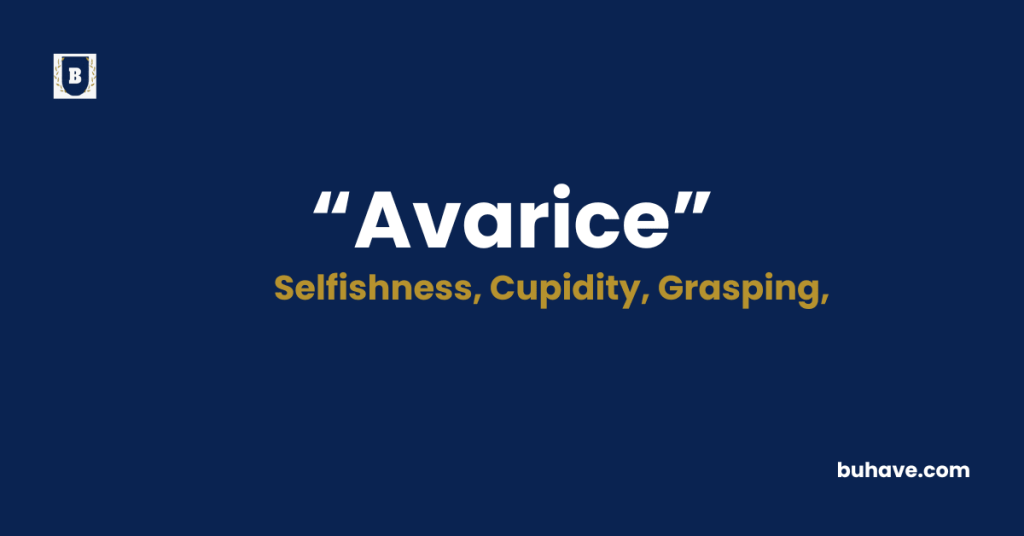The word ‘Avarice’ (Noun) refers to an intense and insatiable greed for wealth or material gain. In this guide, you’ll discover the full meaning, definition, etymology, real-life examples, synonyms, antonyms, and frequently asked questions about the word ‘Avarice.’
Avarice Explained in Depth
A complete and detailed guide to the word ‘Avarice’ including meaning, definition, examples, etymology, synonyms, and antonyms.
Meanings of Avarice
Avarice means an extreme or excessive desire to accumulate and hoard wealth, often at the expense of ethics or compassion. It implies a selfish drive for riches and a lack of concern for others.
Definition
Avarice is defined as an intense or uncontrollable greed for riches and material possessions. It is often used to describe a moral failing, where the pursuit of wealth becomes a person’s dominant motive.
Etymology
The word “avarice” originates from the Latin word avaritia, meaning greed or covetousness, which comes from avarus, meaning “greedy.”
Example Sentences
- The king’s avarice led him to overtax his people and hoard their resources.
- Driven by avarice, the corporation prioritized profit over people and the environment.
- He was warned that avarice would ultimately be his downfall.
Avarice Synonyms
- Greed
- Covetousness
- Rapacity
- Cupidity
- Materialism
- Selfishness
- Hoarding
- Voracity
- Insatiability
- Possessiveness
Avarice Antonyms
- Generosity
- Charity
- Contentment
- Selflessness
- Altruism
- Philanthropy
- Detachment
- Moderation
- Kindness
- Unselfishness
FAQs about Avarice
Here are some frequently asked questions (FAQs) about the word “Avarice”
1. Is avarice the same as greed?
Avarice is a form of greed, specifically an intense and obsessive desire for wealth. Greed can also apply to food, power, or other resources.
2. Is avarice considered a sin?
Yes, in many religious traditions—especially Christianity avarice is one of the seven deadly sins due to its destructive nature.
3. Can avarice lead to unethical behavior?
Often, yes. People motivated by avarice may lie, exploit, or manipulate to achieve wealth.
4. How is avarice different from ambition?
Ambition involves striving for success and achievement, while avarice implies selfishness and moral compromise for personal gain.
5. Can avarice be corrected?
Yes, through self-awareness, empathy, and valuing relationships and ethical principles over material wealth.

















